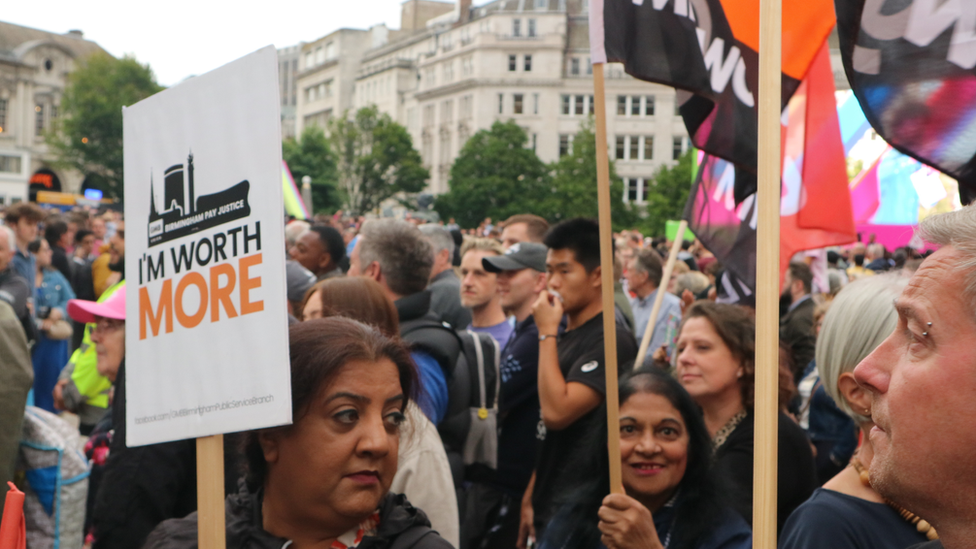Why are some London councils still afloat while others struggle?
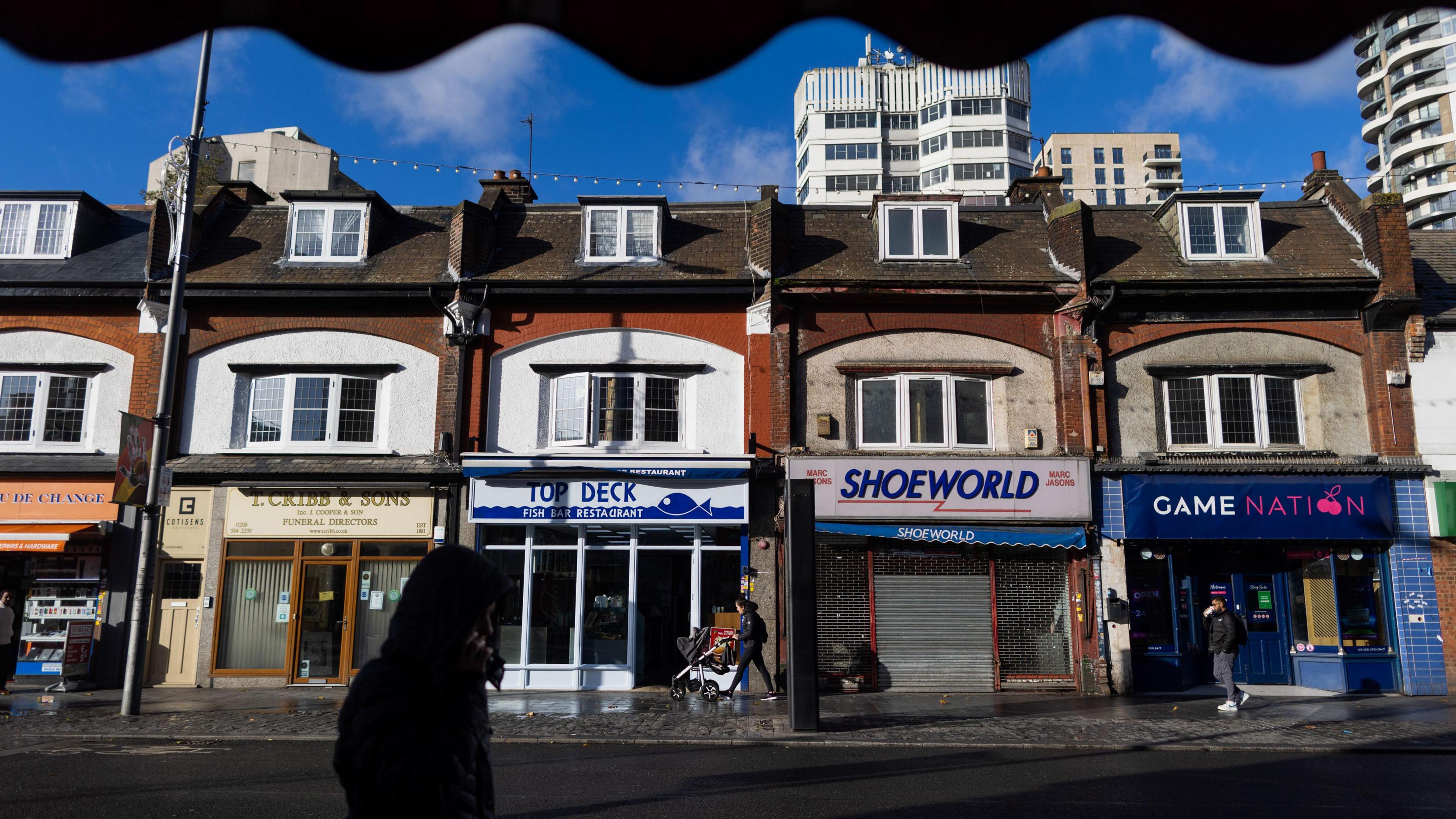
Barking Council has the highest level of debt in London
At a glance
Barking and Dagenham is London's most indebted council, owing £1bn
Bromley Council is the only one in the capital to have presented a balanced budget
But both of them - with hugely different populations and requirements - are citing a pressing need for central government to rethink the way it funds local authorities
The government says it is putting measures in place to see more accountability across local government
- Published
The capital's councils across the political spectrum and of varying levels of financial stability are increasingly speaking openly about nearing effective bankruptcy.
Labour-run Barking and Dagenham Council is the capital's most indebted council. It says that population changes, poverty and austerity are pushing it to the brink, and says there is a desperate need for more central government funding.
The east London authority has debt worth over £1bn, equating to nearly £5,000 per resident, BBC Shared Data Unit analysis found.
Conservative-run Bromley on south-east London's periphery is the only council in London to present a balanced budget this year - but it also predicts that the cost of social care will soon outpace its reserves, and says there is a need for a funding reform.
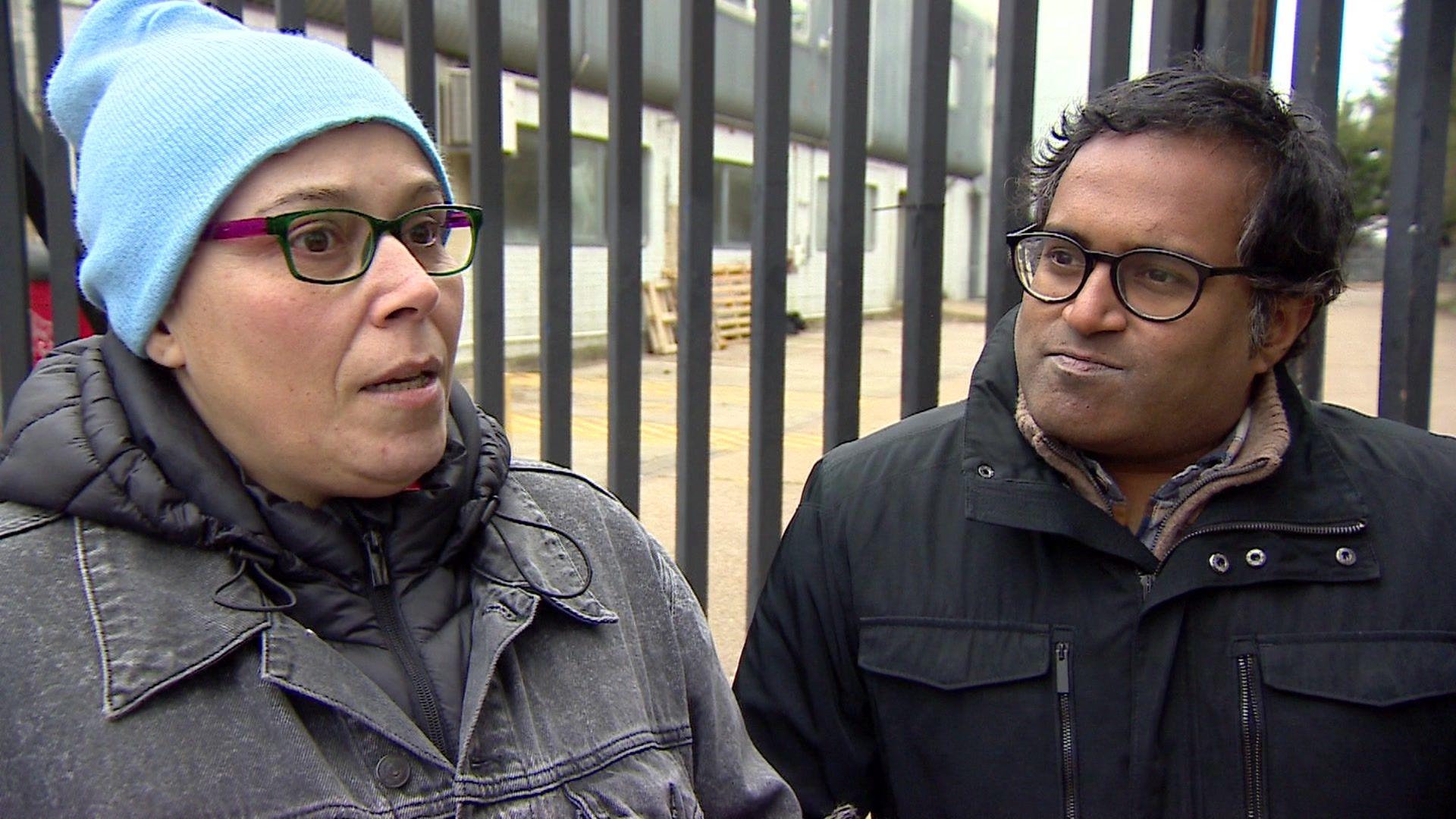
The Barking Warehouse was of great value to Isalina Ferreira and Vishal Narayan
Barking has a range of needs. Described by its council leader as "a bit of the North in the South and part of a fast-changing East End," it has the highest proportion of deprived households in the country, the third-highest proportion of people living in council or social housing and it's seen a 41% increase in incidences of homelessness over the past 10 years.
Since 2011, it also has 20,000 more children as part of a 17% population increase.
One of the reasons for the population uptick is the need for affordable housing. Barking and Dagenham is the cheapest place to live in London combining rent and house prices, according to Rightmove.
And the pinch is being felt already. A much-valued community centre, known locally just as the Warehouse, closed its doors in December. The Warehouse offered free upskilling workshops, with free use of a ceramics studio, a fabric workshop and a silk screen printing studio, providing free training and career prospects for the community.
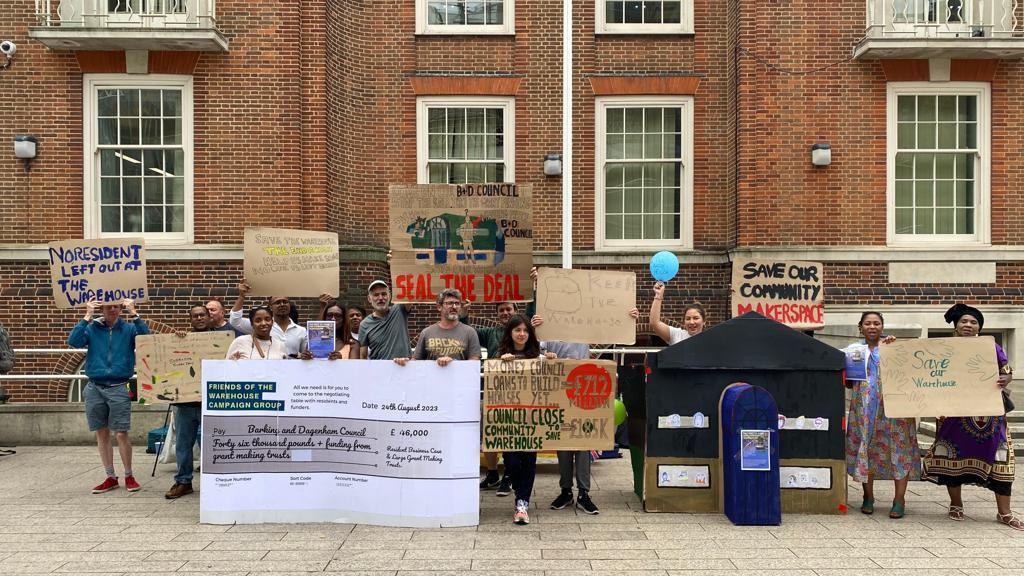
The Friends of the Warehouse campaigned to save it from closure
Local resident and volunteer Isalina Ferreira said the Warehouse "saved her life".
She explained: "During the pandemic, it helped me and a lot of people that were going mentally crazy, locked up with nowhere else to turn.
"Warehouse offered me the chance to invest in a business. We learnt how to manage all aspects of a business. It gave me, my son and other families and children a lot.
"It benefited children so much, it took kids off the street."
'Solving one problem but creating another'
"It's an extreme loss," says Vishal Narayan, who used the space to train break-dancers and hold community meetings.
"A considerable amount of money from the council and the Greater London Authority has been invested into this project for people to develop and gain skills.
"I know the council has to make cuts, however with the lack and loss of community spaces there could be better planning.
"The lack of social infrastructure and community spaces in the borough is pressing when new-build housing is on the rise. They are solving one problem with a quick sale but creating another."
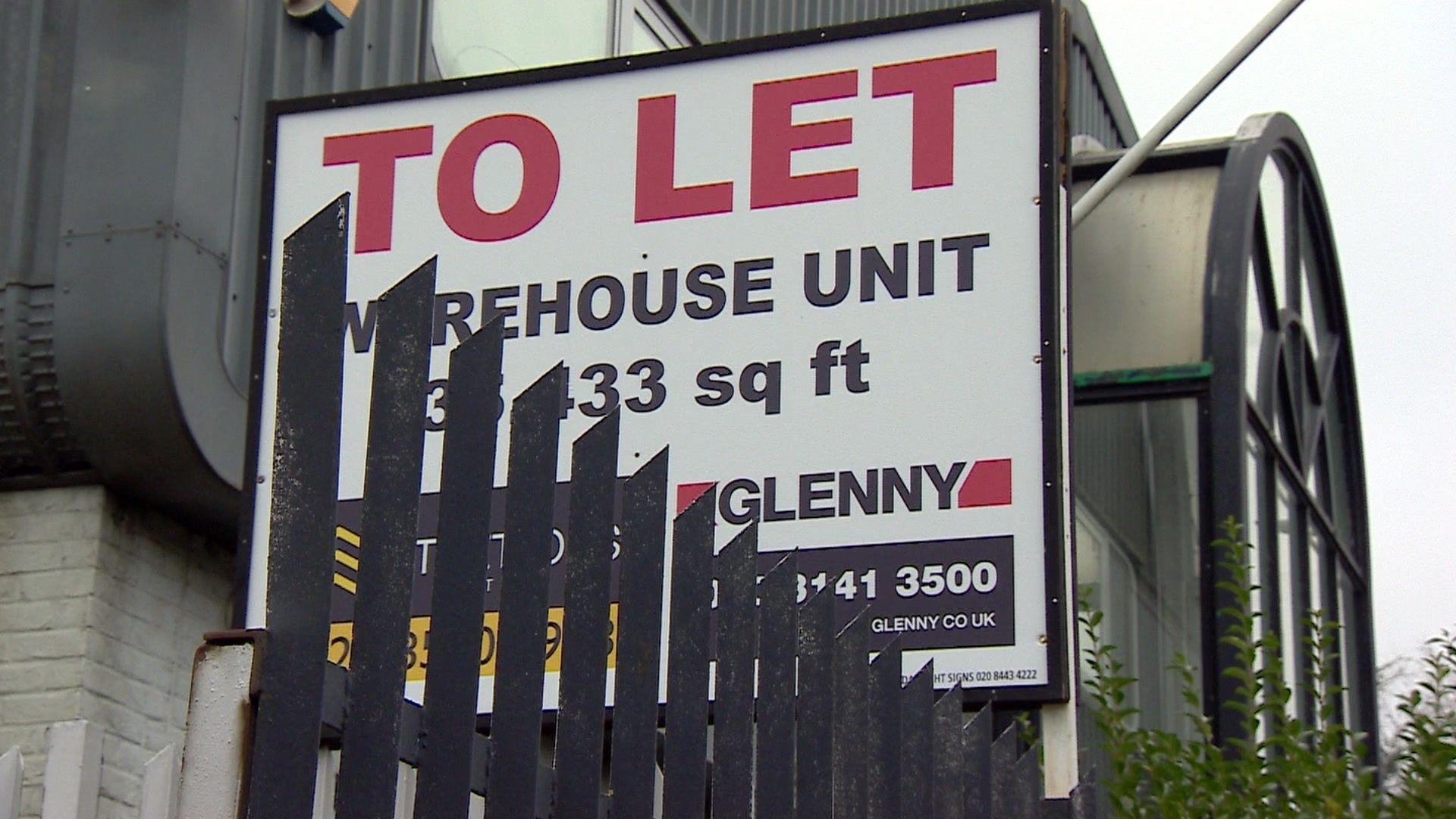
The Warehouse will now be let out by the council to raise income
The Labour leader of Barking and Dagenham, Darren Rodwell, said they were not left with many options as their finances were being "pushed to the edge".
He said: "Funding provided by the government just isn’t matching this [population] growth, which means we are 40% down on our funding since 2010.
"This is a really difficult time for local government and, like all local authorities, we will need to make some tough decisions to balance our budget over the coming months. We will consider all options. Nothing is off.
"Our already-overstretched budget is being pushed to the edge, but we are acting to control it. We already run an efficient, low-cost council. Since 2010, we have made £175m of savings, and we will find more.
"We need to make £11.6m in-year savings in this financial year, and around £23m savings in the next financial year ."
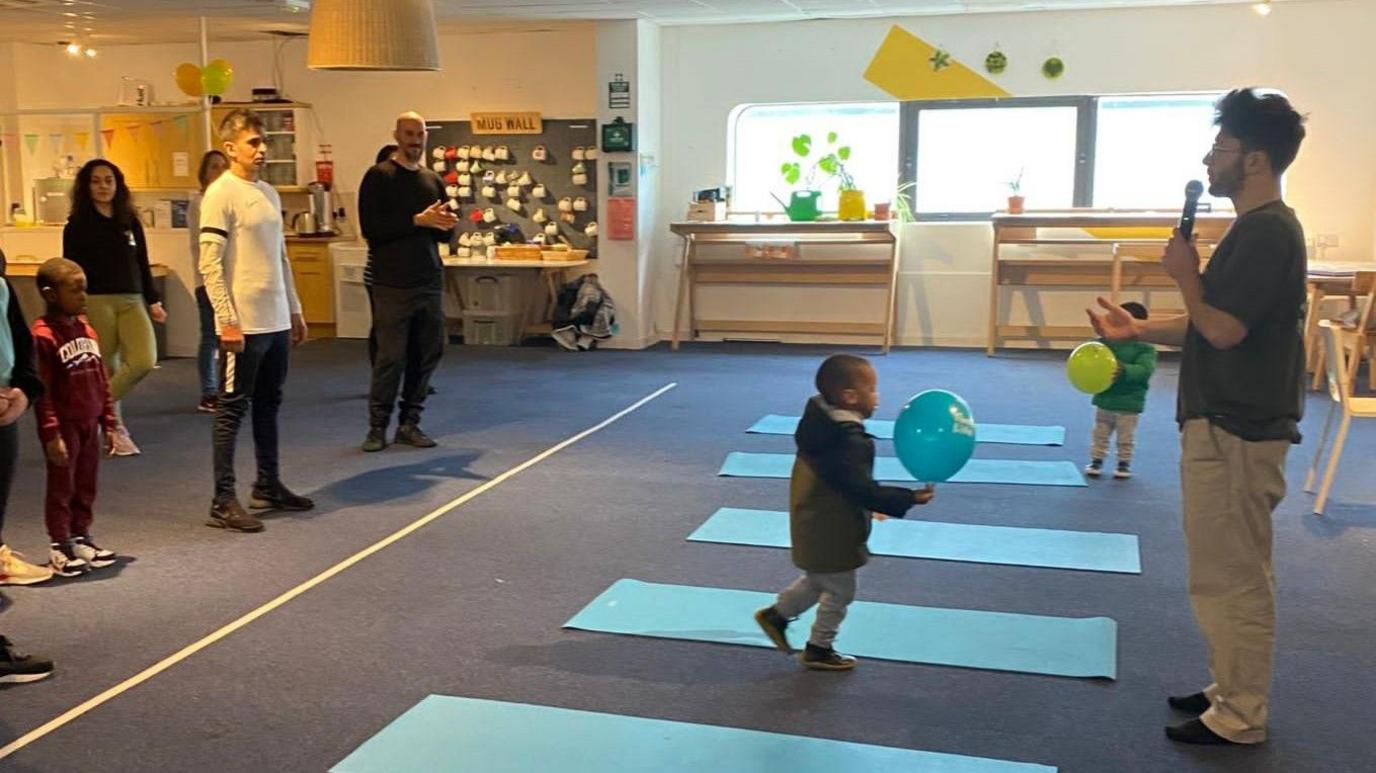
Children and parents did games and classes at the Warehouse before it closed
Perhaps unexpectedly, the Conservative leader of Bromley Council, Colin Smith, echoes Mr Rodwell's comments, despite it being on the opposite end of London's spectrum for demand for social care services and deprivation.
It is the fourth-least deprived London borough, unemployment levels are low, and it has the second-lowest out-of-work benefit claimant count in the capital.
Population growth was also lower in Bromley than the London average over the past 10 years.
'Absolutely unrelenting'
He told BBC London: "Compared to other times, they're grim, grimmer by the week, but compared to London, we're not doing too bad.
"We've always kept our reserves at an above-average level and it's paying dividends at the moment. But the pressure on children's services, adult social care and housing is absolutely unrelenting. Along with the recent bout of inflation, there are real serious threats going into the future.
"For us, we're calling for fairer funding for the outer boroughs to fund our needs, compared to what inner London receives."
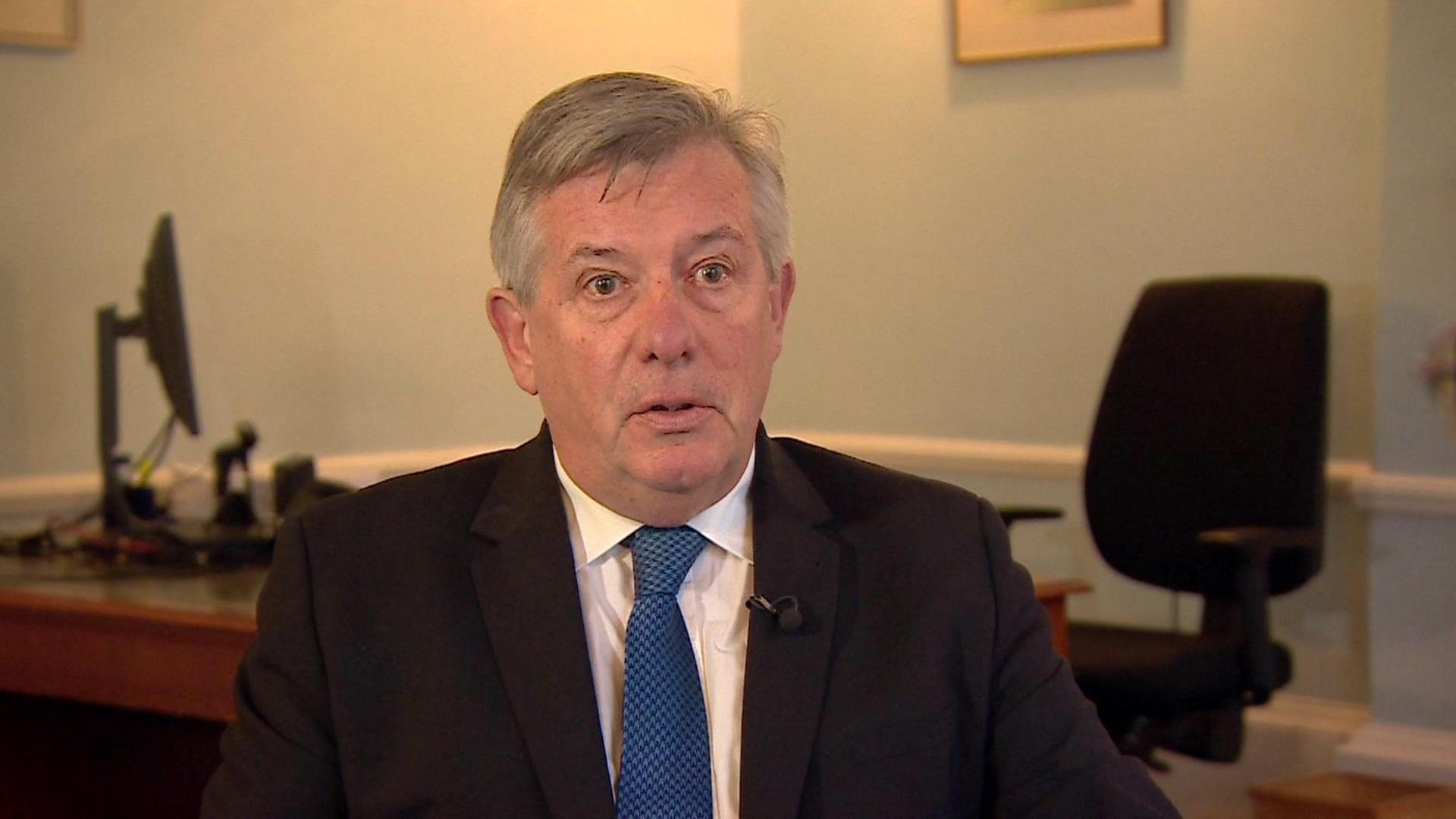
Bromley Council's leader Colin Smith is worried about its finances
The Department for Levelling Up, Housing and Communities said: “Councils are ultimately responsible for their own finances, but we are very clear they should not put taxpayers' money at risk by taking on excessive debt.
“The Levelling Up and Regeneration Act provides new powers for central government to step in when councils take excessive risk with borrowing and investment.
"We have also established the Office for Local Government to further improve accountability across the sector, which will help detect emerging risks and support councils to continue delivering key public services.”
Listen to the best of BBC Radio London on Sounds and follow BBC London on Facebook, external, X, external and Instagram, external. Send your story ideas to hello.bbclondon@bbc.co.uk, external
More on London council finances
- Published2 January 2024
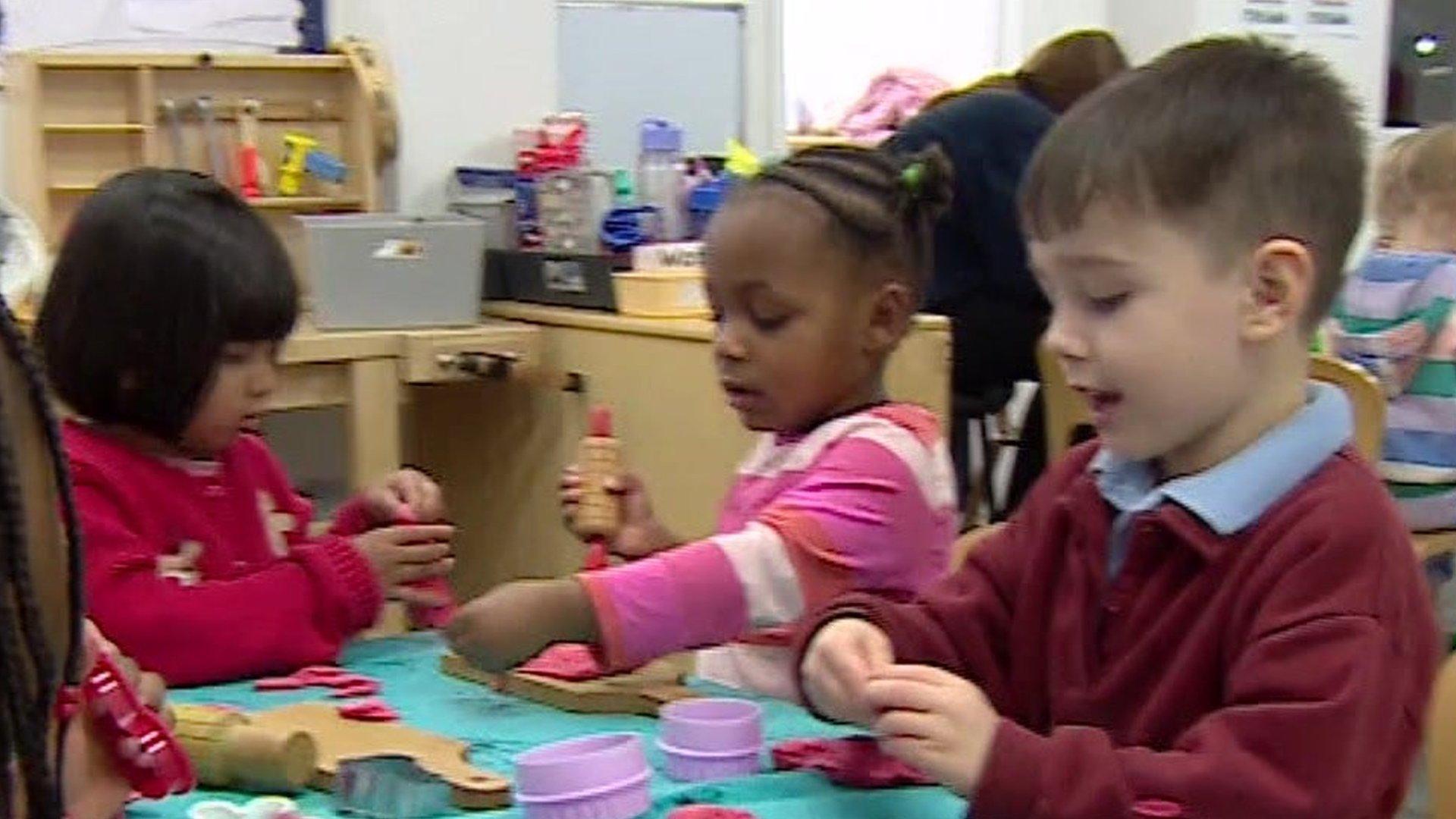
- Published4 May 2023
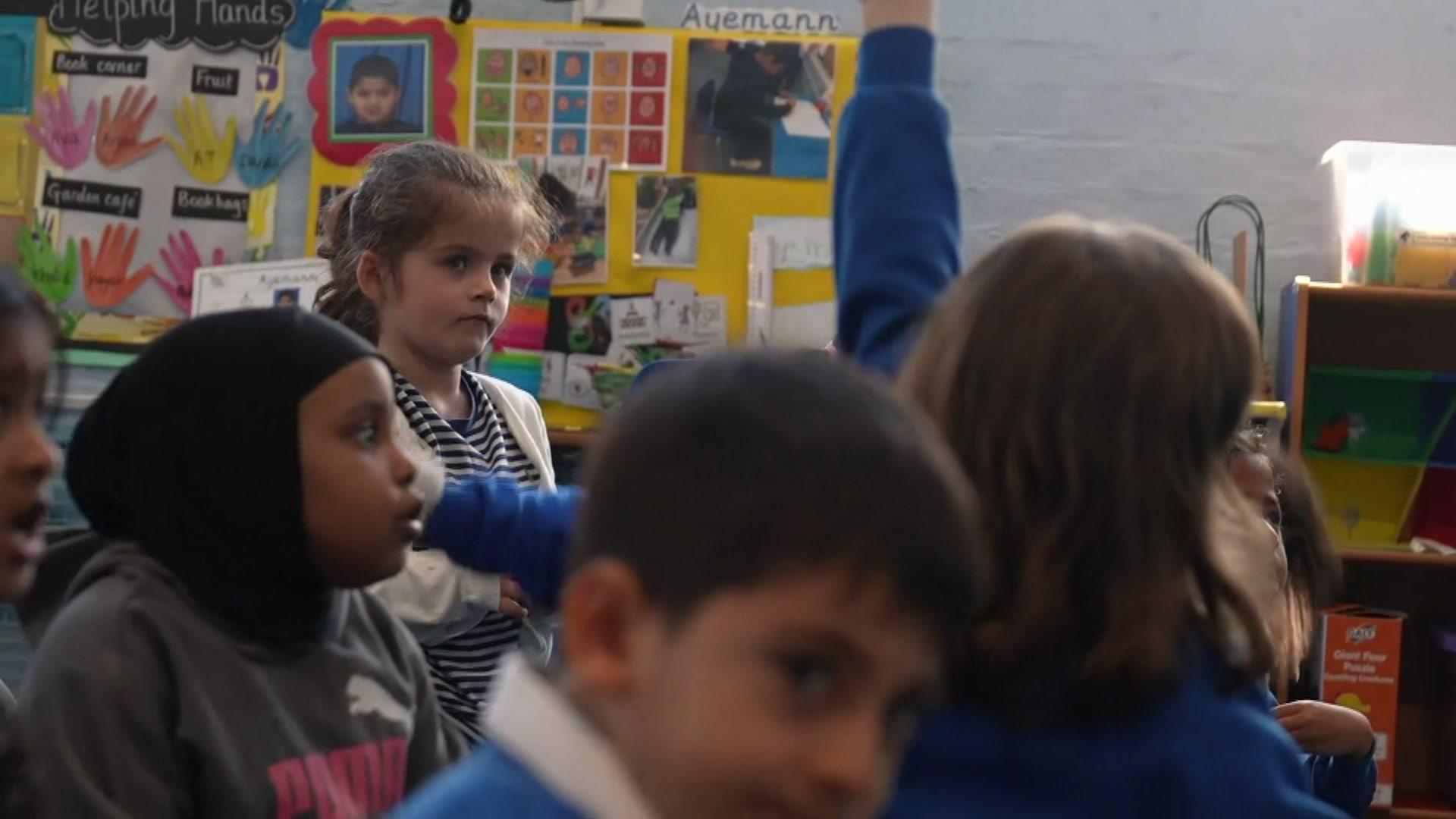
- Published12 October 2023
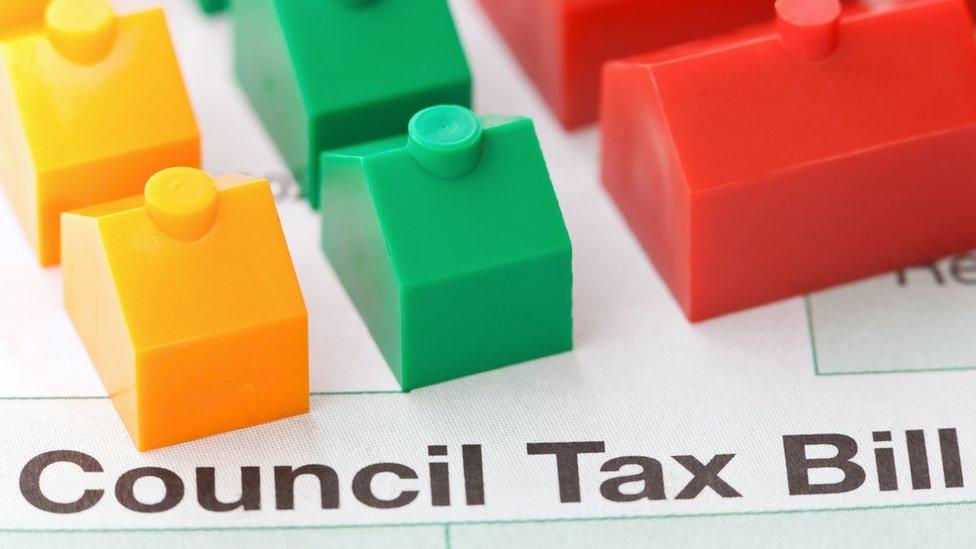
- Published16 January 2024
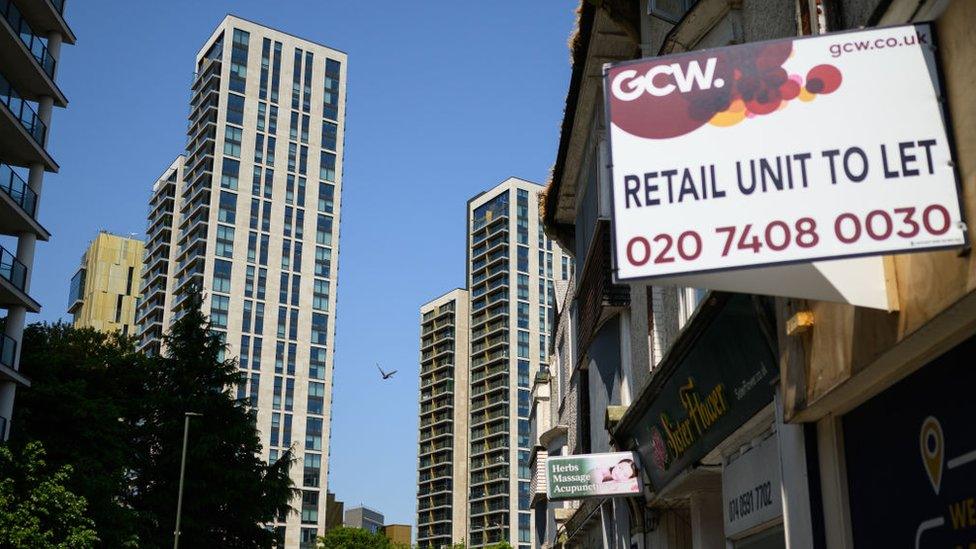
- Published5 March 2024
